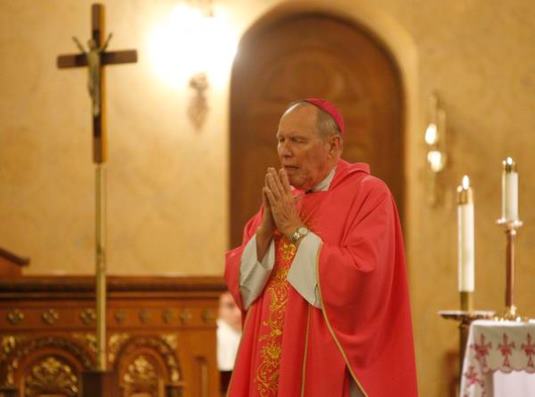|
Former Rochester Bishop Matthew Clark not capable of testifying about priest abuse, doctor says
By Steve Orr
Bishop Emeritus Matthew Clark's Alzheimer's disease has left him unable to provide useful sworn testimony about the history of child sexual abuse in the Rochester diocese, his physician and lawyer say. Lawyers for abuse victims had filed a motion in the diocese's bankruptcy case asking that Clark be directed to answer questions under oath about abuse by priests and other church ministers during his 33 years as the diocese's leader. The lawyers for accusers believe Clark knows a great deal about abuse and about actions taken by diocesan leaders to shield accused ministers from public scrutiny. They have said they're aware of Clark's Alzheimer's diagnosis but believe they should be able to question him and make their own determination about his abilities. "I think those abused under his tenure should have the right to test his competency in a deposition," said Leander James, an Idaho lawyer who represents a number of people who say they were sexually abused by Catholic ministers in the Rochester diocese. Victims' lawyers are seeking information about past child sexual abuse to help them press their case for significant compensation of victims as part of the settlement of the diocese' s Chapter 11 bankruptcy reorganization. Clark, now 82, retired in 2012. The diocese announced in September he was suffering from Alzheimer's. In a response to the motion filed Friday, Clark's lawyer, Mary Jo S. Korona, said flatly "the bishop emeritus is not able to competently testify." A letter from Clark's neurologist, Dr. Anthony M. Maroldo, went further. "His memory impairment limits his ability to assimilate and recall information presented in lengthy or complex questions and his ability to recall past events. His language impairment limits his ability to formulate clear, cogent and reliable responses to such questions," Maroldo wrote in a letter subjected to the court by Korona. "He tires easily and … his cognitive impair worsens when he is tired or stressed. It is my opinion that preparing for and participating in a deposition would very like cause Bishop Clark to experience anxiety, frustration, stress and irritability that would further impair his ability to … provide reliable responses to questions during a deposition." Maroldo wrote that he first saw Clark in August 2018 and diagnosed him with Alzheimer’s dementia in July 2019. Korona said in her filing there are other diocesan officials who better able to answer questions from victims' lawyers, as well as written records that cover abuse issues. She asked U.S. Bankruptcy Judge Paul R. Warren to deny the motion compelling Clark to give a deposition. The motion to compel a deposition may be on the agenda at hearing Tuesday before Warren. Contact: sorr@democratandchronicle.com
|
.
Any original material on these pages is copyright © BishopAccountability.org 2004. Reproduce freely with attribution.
